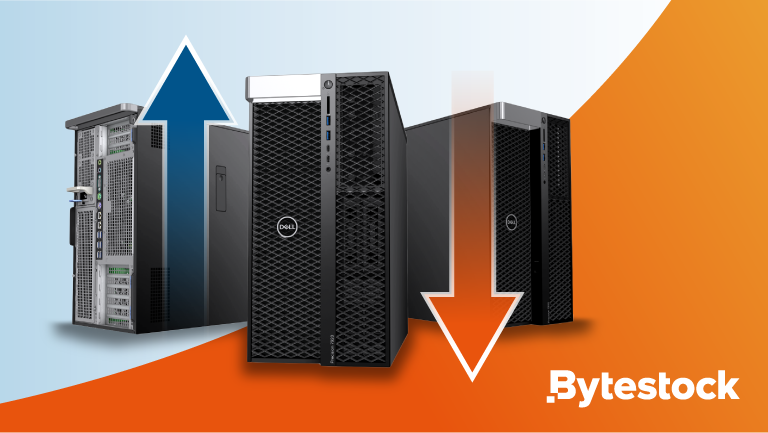When it comes to high-performance computing, few names turn heads quite like NVIDIA. Their data...
Laptop or Desktop for Your Remote Teams?

There's a good chance you're reading this on a laptop screen. With so many of us now working remotely, laptops have become the default work machines for many. And what's not to like? They're mobile, lightweight, and compact, allowing you to work from virtually anywhere. However, there are some limitations to consider.
Power and Performance
Even low-end desktop workstations generally offer more power than premium laptops. They come equipped with more memory and more powerful processors. Surprisingly, high-end laptops often cost more than desktop workstations with similar specifications.
Customisation and Upgrades
Once you've purchased (or been assigned) a laptop, the ability to modify and add hardware is limited. In contrast, a desktop workstation offers the freedom to upgrade components such as GPUs or storage drives as your requirements evolve. If you anticipate growing needs, it’s more cost-effective to invest in a somewhat “future-proof” workstation than to try and do the same with a laptop.
Longevity
Think of a desktop workstation as a long-term investment. It’s something that will last for years and can be readily modified to suit your needs. Laptops, on the other hand, aren’t easily customised and have an average lifespan of three to five years.
Comfort and Productivity
Desktop workstations generally provide a more comfortable work setting. They require a separate monitor, keyboard, and mouse, and are typically used on a dedicated desk. This setup can lead to a more productive and ergonomic user experience. Compare this to the “laptop hunch,” where users crouch over their laptops, which can lead to discomfort. While you can add desktop peripherals to a laptop, this means additional costs on top of an already significant investment in a powerful portable computer.
Portability and Aesthetics
Of course, workstations do have their disadvantages. The most obvious is their size and lack of portability. Without batteries, they’re not ideal for a travelling workforce. While laptop batteries used to perform poorly, modern laptops now offer improved performance and reliability, making them suitable for on-the-go teams.
Aesthetically, workstations aren’t the prettiest. They tend to be bulky and utilitarian, better suited to being tucked away under a desk than displayed on top.
Making the Right Choice
As with any purchase, whether for yourself or an entire department, the decision comes down to what's really needed.
- Laptops: If your teams travel between multiple workplaces and require flexibility and portability, laptops are the obvious choice. Remember to account for the additional expense of monitors and peripherals.
- Desktop Workstations: If your company is moving to entirely remote work, consider desktop workstations. They are more powerful, affordable, comfortable, and future-ready.
View our range of workstations or contact us today to find the perfect solution for your remote teams.





